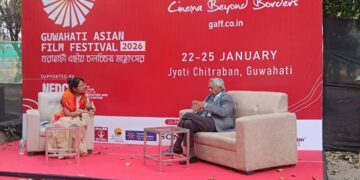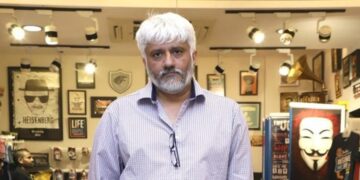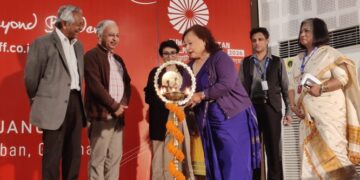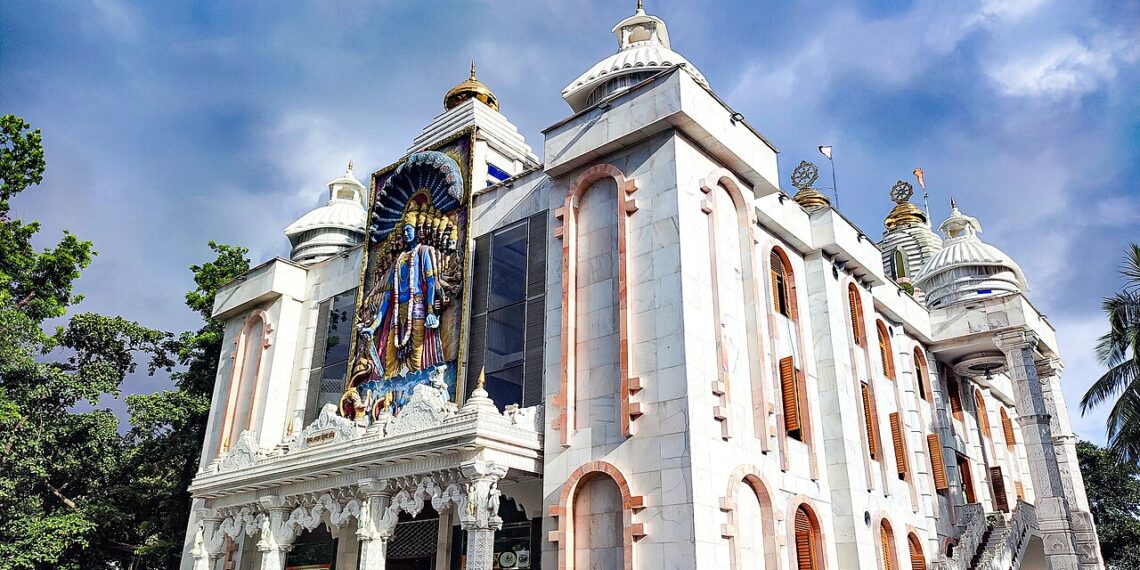Fundamentalist groups in Bangladesh having a free run since the fall of the Sheikh Hasina government are now paying the cost of steamrolling the opposition Awami League which has a secular outlook.
Now religious organizations like the International Society for Krishna Consciousness are turning into the rallying points of Hindu minorities who have been at the receiving end of the onslaught of Jamaat-e-Islami and its cohorts.
On November 10, Awami League filed a complaint before the International Criminal Court against the caretaker government in Bangladesh led by Mohammed Yunus for violation of human rights and planned to take out a rally in Dhaka to mark the occasion.
The BNP, Jamaat-e-Islami and fundamentalist groups did not allow the Awami League to stage the rally and assaulted the Awami League supporters who had assembled.
Soon after the departure of Sheikh Hasina from Dhaka on August 5 there was large-scale violence, arson, killings and attacks on minorities.
After the takeover of the Mohammed Yunus-led caretaker government, a semblance of order was restored.
But minority communities were continuing to face harassment and attacks; like the one reported by Global Human Rights Defence at Mia Bazar in Karimganj in which a Hindu youth having a romantic relation with a Muslim girl was assaulted. Later, he was reported to have died in custody.
In the absence of political parties to help them, the Hindu minorities are now turning to religious groups like ISKCON for protection.
Monks of ISKCON in their individual capacities have taken up the cause of the Hindu minorities.
Under nonpolitical banners, sizable gatherings of the Hindu community have taken place. On November 22 the Samyukta Sanatani Jagaran Jot held in support of minority rights a rally in Rangpur which was described as “massive.”
Not surprisingly, ISKCON and its monks are now facing the wrath of fundamentalist groups which do not approve of such assemblies of the minority communities.
The fundamentalist groups are now retaliating by attacking ISKCON and its monks. There had also been a move for banning ISKCON in Bangladesh but the Bangladesh High Court has rejected the plea.
Chinmoy Krishna Das, an ISKCON activist and spokesperson for the Bangladesh Samyukta Sanatani Jagaran Jot, was arrested on November 25 on charge of sedition for allegedly insulting the national flag of Bangladesh.
It is not unusual for monks to be involved in political issues that touch the larger interest of their communities.
ISKCON chief in Bangladesh Charu Chandra Das Brahmachari has said that fundamentalists are attacking ISKCON because the religious group is standing in the way of the agenda of fundamentalists in Bangladesh to instill fear among the Hindus and force them to convert.
Forcible conversion must have been going on in Bangladesh for a long time. During the formation of Bangladesh in 1971, Hindus comprised 22 percent of the population of the country.
Now the Hindu population in Bangladesh has come down to a mere eight percent. In a country with a total population of over 170 million, such a decline in the Hindu population is unlikely to have taken place only because of migration to other countries.
There must have been many more conversions, forcible or otherwise, over the years.
The way incarcerated ISKCON monk Chinmoy Krishna Das has been treated by the judiciary in Bangladesh is travesty of justice. His bail plea could not even be raised as no lawyer was allowed to appear for him.
His custody was extended till January 2 when the bail plea would be raised again. His lawyers were openly threatened. Advocate Ramen Roy who had earlier defended Chinmoy Krishna Das in court was attacked by a mob and his house was ransacked.
Ramen Roy is now in the intensive care unit of a hospital, fighting for his life.
The claim that the attacks on lawyers defending Chinmoy Krishna Das are in retaliation against the murder of Assistant Public Prosecutor in Chittagong court Saiful Islam on November 30 does not hold water.
A case has been filed against 46 persons, mostly cleanliness workers belonging to the minority Hindu community, for the murder of Saiful Islam.
But the attack took place during a clash between supporters of Chinmoy Krishna Das and political groups demanding “stern action against killers of Islam.”
Thus, unlike the one on Ramen Roy, the attack on Saiful Islam was not a pre-meditated one.
The attack on monks of ISKCON has boomeranged on Bangladesh. Members of ISKCON are influential people and spread across the globe.
The happenings in Bangladesh have drawn international condemnation. “The United States has called for respect for fundamental freedoms including religious and basic human rights in Bangladesh amid attacks on minorities. Governments need to respect the rule of law,” the US State Department Deputy spokesperson Vedant Patel said last Tuesday.
Unwittingly, the ruling dispensation in Dhaka by unleashing violence and atrocities on the minority communities has provided former Prime Minister Sheikh Hasina with an opportunity to return to the centre-stage of Bangladeshi politics.
Participating virtually from Delhi in a meeting in New York, she has held Mohammed Yunus responsible for what she has described as “genocide” in Bangladesh.
West Bengal Chief Minister Mamata Banerjee’s demand that an international peace-keeping force should be deployed in Bangladesh and Delhi should take this up with the U.N. has added a new dimension that the Mohammed Yunus government will not find very comfortable.















